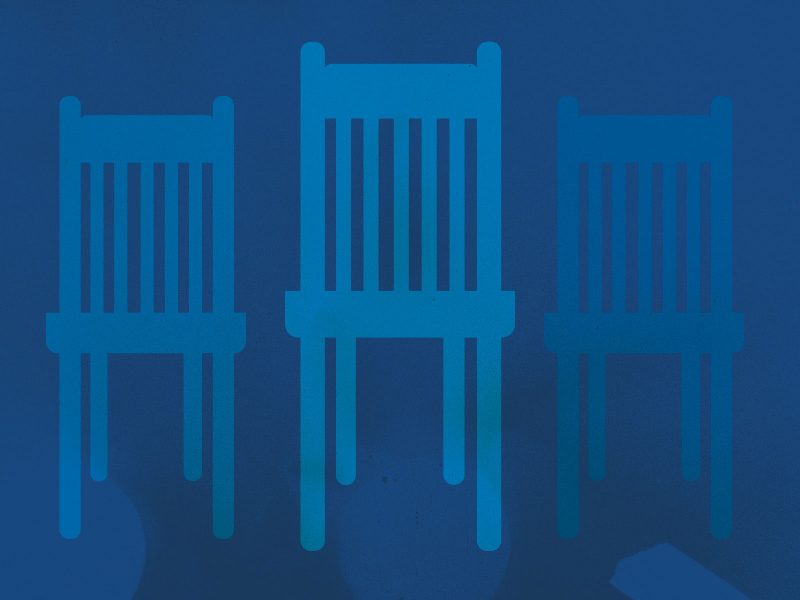
End Furniture Poverty has carried out extensive research into local welfare assistance (LWA) – local authority-run schemes to support people in a time of crisis with grants, and providing essential furniture and appliances.
It is estimated that over 5 million people in the UK are living without at least one essential household appliance such as a cooker or a fridge freezer.
Charity campaign End Furniture Poverty published The Postcode Lottery of Crisis Support earlier this year, and it revealed since 2010, there has been an 86% decline in the amount spent on crisis support and 25 local authorities in England had closed their LWA schemes, leaving one in five people unable to access crisis support.
The picture is very different in the devolved nations where everyone can access a scheme. End Furniture Poverty found that in 2019/20, in England the per capita spend on LWA was just 64p, compared to £4.19 in Wales, £6.79 in Northern Ireland, and £6.88 in Scotland.
They are now examining the current state of LWA provision and the additional support offering during the pandemic. Initial findings suggest that there are now more than 27 local authorities without an LWA scheme in England. End Furniture Poverty are continuing to analyse the data and will publish the final figures in a follow-up report later this year.
The additional Covid funding provided by Government over the past 18 months, while welcomed, was redirected by the vast majority of local authorities to third party and community sector organisations, such as foodbanks; and a sizeable proportion appears to have been used to fund Free School Meals – leaving furniture provision severely neglected.
The Covid funding was often provided with little notice and with tight spending deadlines so those areas without adequate LWA infrastructure struggled to direct support to those most in need.
End Furniture Poverty believe that a long-term ring-fenced funding commitment will provide local authorities with the certainty they need to expand on existing schemes or, in those areas without a scheme, create one – and ensure the funding is not diverted to prop up other frontline services.
Claire Donovan, Head of Policy at End Furniture Poverty, said: “Investing in local welfare schemes is not only the right thing to do, it can also create significant savings across the public purse.
“Living in furniture poverty has a terrible impact on people’s mental and physical health, leading to increased NHS costs, and it can drive people into unmanageable debt as they try to access high-cost credit, leading to evictions and homelessness.
“It makes good fiscal sense to invest in local welfare assistance and we urge Rishi Sunak to make this a Budget priority.”
The Government provided significant levels of emergency funding for LWA in response to the pandemic, therefore admitting that crisis support was underfunded and inadequate in many parts of the country. But spending deadlines and the lack of infrastructure in areas with a closed local welfare scheme, meant that in too many cases the funding did not reach those who most needed it.
As the numbers claiming Universal Credit have doubled in some parts of the country, many more struggle to replace broken appliances or buy a bed for their child. For those escaping homelessness, fleeing domestic violence, and care leavers, who often have nothing, welfare schemes are a vital lifeline to prevent severe hardship and destitution
End Furniture Poverty also ask the Government to provide guidance to local authorities to ensure that at least 65% of LWA is used to provide furniture and white goods and to ensure that local authorities properly advertise the schemes, making them easily accessible on their websites.
Claire said: “With the £20 cut to Universal Credit, the end of furlough, rising energy costs and the upcoming increase to National Insurance contributions, millions of people are struggling and while there is widespread support for food and utilities costs, there is little other support for furniture and white goods.
“The grant-giving sector do a fantastic job, providing furniture and white goods to applicants, but they cannot shoulder the burden alone – people need properly funded Local Welfare Assistance schemes and we urge the Government do the right thing and make this crucial investment.”
The Postcode Lottery of Crisis Support report can be found here: https://endfurniturepoverty.org/research/the-postcode-lottery-of-crisis-support/ and the follow-up report will be published later in 2021.

Providing a package of essential furniture to someone in need creates £6472 of social value according to a report published…
Read more
A detailed guide to help all social landlords provide furniture and white goods to their tenants is published today by…
Read more
Thank you to everyone who came along to our webinar on our latest report, The Postcode Lottery of Crisis Support….
Read more